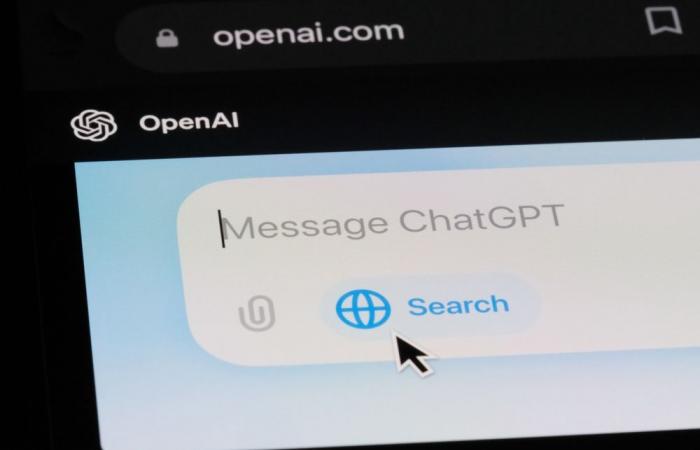ChatGPT Search’s ability to provide ready-made answers eliminates one of the main steps of Google search: analyzing the results. The end of a monopoly?
OpenAI announced the expansion of the feature ChatGPT Searchmaking it available to all users with accounts, including those of the free version. Now anyone will be able to use the search function to access updated information from the web, just like we do with Google.
How ChatGPT Search works
ChatGPT uses a search function to gather updated information from the internet. This means it can respond to recent events, newly launched products, current news and dynamic topics. When activated, Search formulates specific, targeted queries to a search engine, then analyzes and summarizes the most relevant results, presenting them to the user in an understandable and useful format.
Differences with Google
ChatGPT Search’s ability to provide ready-made answers eliminates one of the main steps of Google search: analyzing the results. The differences between ChatGPT Search e Google they are mainly based on approach, user experience and output. Both provide information, but they do so in different ways and for different purposes.
Approach
- ChatGPT Search provides a summarized and structured answer, combining information from multiple sources. It doesn’t show the links directly, but a summary of the relevant information.
- Google, on the other hand, shows a list of results (web pages, articles, videos, etc.), leaving the user to visit the sites to find the most suitable answer.
User Experience
- ChatGPT Search: It’s conversational. You can ask follow-up questions, ask for clarification or delve deeper into specific aspects, and the system “remembers” the context of the conversation.
- Google: It’s more transactional. You have to enter a new query every time and you have to browse through the resources to get the answer. It has no memory of the context of your searches.
Output
- ChatGPT Search: Returns concise and integrated answers, ideal for those who want quick answers without having to read entire articles.
- Google: Gives direct access to sources. You can explore in depth, read full articles or access specific content.
Reliability of Sources
- ChatGPT Search: Automatically selects information from multiple sources, but doesn’t always make it clear what they are. Because of this, some answers may seem less verifiable.
- Google: Clearly displays links to sources, giving you the opportunity to verify reliability and choose the content you prefer.
Google monopoly at risk?
bigG’s monopoly as the dominant search engine could be put at risk in the long term, but this will depend on several factors. At the moment, Google continues to be the undisputed leader, thanks to its vast infrastructure, quality of results and well-established business model. However, the emergence of technologies like ChatGPT Search and other AI-based tools could mark a turning point in the online search industry.
The monopoly is not yet at immediate risk thanks to its well-established ecosystem (YouTube, Gmail, Android, Chrome e Maps) and its advertising network (Google Ads) irreplaceable for many companies. But the wind is changing.
AI technologies are laying the foundation for a more competitive ecosystem, and the key will be to see how quickly Google can integrate conversational AI to maintain its dominant position. The presence of conversational models could force Google to reinvent itself, improve user experience and perhaps reduce the use of intrusive advertising.
It is not certain that Google’s dominance is destined to collapse, but it will probably change.
Read other news on the Key4biz home page






